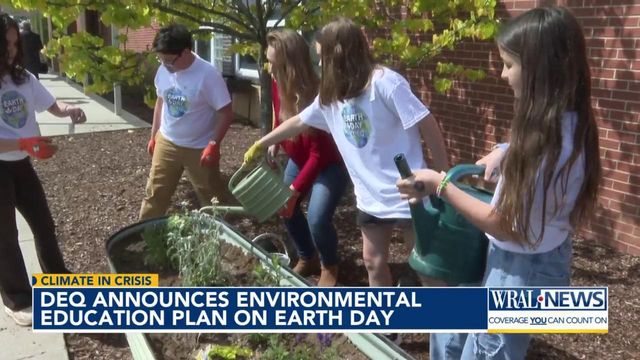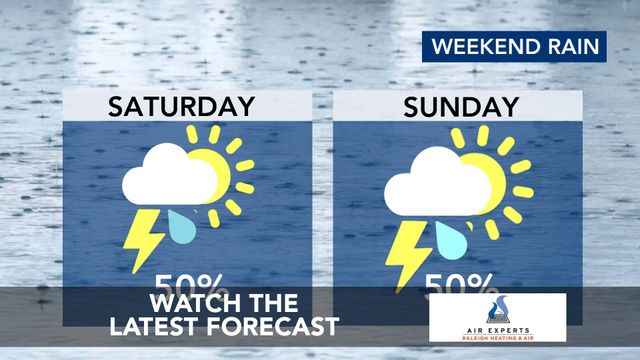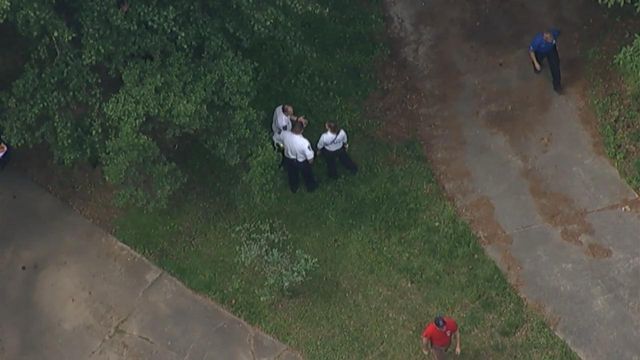NC students to learn about environmental issues through Earth Day-inspired plan
Children in central North Carolina may learn more about the environment thanks to a new K-12 education plan announced on Earth Day.
Students at Lincoln Heights Elementary School in Fuquay-Varina integrate environmental education into their everyday coursework, including calculations from their GReenpower grant-funded solar panel or hands-on ecosystem science through building a pollinator garden.
Student Julia Handy wore an ear-to-ear grin as she scooped in the dirt and carefully removed flowers from their cartons, reading the plant descriptions in detail as she planted.
“We get to help the environment by having more plants and it was really fun,” Handy said.
North Carolina Department of Environmental Quality Secretary Elizabeth Biser joined Handy and other students for the planting project on Monday after announcing the new K-12 environmental literacy plan at the school.

The plan isn't mandatory, but provides a framework for formal educators with ways students can learn about environmental issues, critical thinking and civic engagement.
“Making sure that we've got students who are educated in science and environmental literacy is going to be so important to make sure that we can tackle the challenges of the future,” Biser said.
Biser called the garden another tool for teachers to teach students.
"They're going to see that their kids are going to have more opportunities for science education for outdoors learning, and we know that that benefit students not just in science education, but really across the curriculum," Biser said.
Several studies suggest environmental education and nature-based learning can improve grades and mental health for students.
"Building that into the curriculum is really important not just for their young lives today, but who they will become as citizens," said Wake County Board of Education member Monika Johnson-Hostler.











